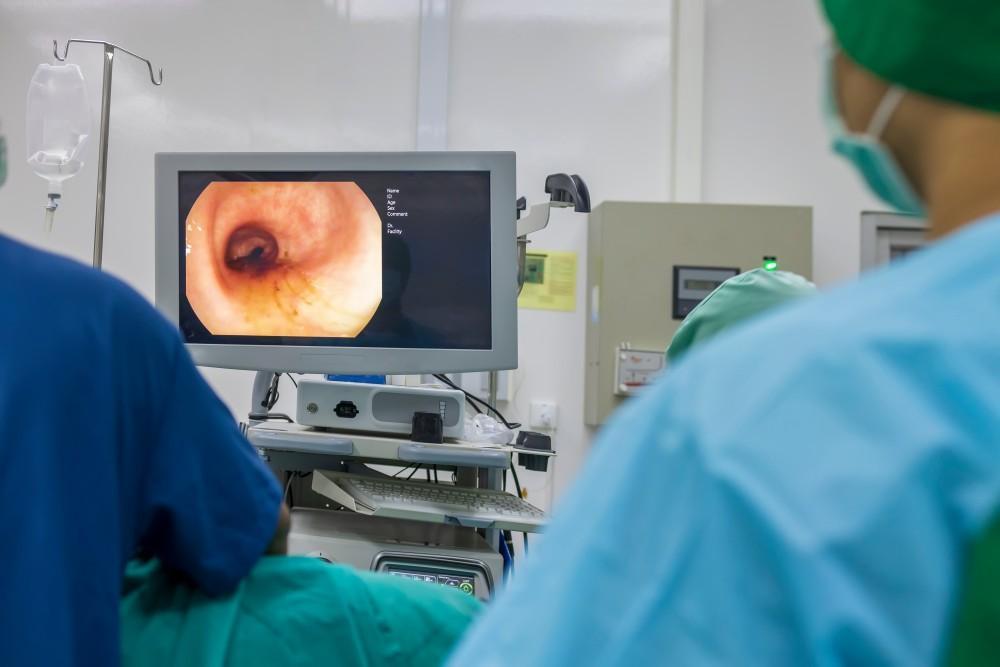
Can I Control My IBS with My Diet?

Irritable bowel syndrome (IBS) is a functional gastrointestinal (GI) disorder that may cause you extreme discomfort, pain, and embarrassment. IBS tends to cause symptoms such as:
- Constipation
- Diarrhea
- Both constipation and diarrhea
- Gas
- Bloating
- Mucus in stool
Although IBS isn’t a disease, it can make eating and eliminating painful. Researchers haven’t identified a single cause for IBS, but some factors involved include:
- Intestinal muscle contractions
- Hyperactive nervous system
- Severe gut infections
- Early life stress
- Lack of “good” gut bacteria
Our colorectal experts at Colon and Rectal Surgeons of Greater Hartford — in Bloomfield, South Windsor, and Plainville, Connecticut — diagnose and treat functional GI disorders as well as GI diseases. Many gut problems can be managed with dietary changes. Following are those you should consider if you have IBS.
Keep a food diary
Your IBS symptoms and triggers are unique to you. By keeping a journal in which you record everything you eat in a day — including snacks and alcoholic beverages — you may be able to identify foods and beverages that cause your symptoms.
Try a low-FODMAP diet
Fermentable oligosaccharides, disaccharides, monosaccharides, and polyols (FODMAPs) are short-chain carbohydrates that tend to be prevalent in Western diets. Scientists discovered that the human small intestine doesn’t easily absorb FODMAPs.
FODMAPs tend to create inflammation, excess fluid, and gas. One study demonstrated that 76% of IBS sufferers improved on a low-FODMAP diet.
Either in addition to keeping a food diary, or instead of journaling, simply adopt a low-FODMAP diet for a month or two to find out if your symptoms improve. If they do, you can either stay on it long term or test your individual sensitivity to a particular food by introducing it (one at a time, please!) back into your diet for a couple of weeks and evaluate its effect.
A low-FODMAP diet includes both restrictions and recommendations. By concentrating on individual irritants rather than entire categories of foods, a low-FODMAP diet gives you more flexibility than some other approaches.
What to not eat … and what to eat instead
The foods you should avoid on a low-FODMAP diet include some normally healthy foods. However, because they can be hard to digest, you should eliminate them while you experiment.
Dairy
Lactose in dairy cows, particularly those with the A1 protein, causes digestive problems in many people, even those without IBS. Avoid cow’s milk itself, as well as dairy products made with cow’s milk, including yogurt, ice cream, and soft cheeses.
Instead, try goat’s milk or sheep’s milk, including yogurt and cheeses made from these products. Or, opt for coconut milk and yogurt instead. You may also tolerate lactose-free milk.
Fruits
Even though fructose is a natural sugar, it can trigger IBS. Cut out fruits that are high in fructose or polyols, including apples, pears, peaches, plums, blackberries, cherries, mangoes, pears, and watermelon. Avoid sweeteners, including honey and agave. Especially avoid high-fructose corn syrup.
Instead, opt for fruits with a low glycemic index. Safe choices include berries (except for blackberries), melons, and citrus.
Vegetables
Some super-healthy vegetables contain high levels of fructan and should be avoided. So, if you never liked broccoli, artichokes, asparagus, brussels sprouts, beetroot, garlic, or onions, you’re in luck! Due to high levels of polyols, you can also cut out cauliflower, mushrooms, and snow peas.
Instead, choose low-fructan and low-polyol veggies. Choices are bamboo shoots, bean sprouts, bok choy, carrots, chives, cucumbers, eggplant, ginger, lettuce, olives, parsnips, potatoes, and turnips.
Protein
Vegetarians with IBS may have trouble finding protein sources that don’t irritate their guts. Avoid foods that are high in galacto-oligosaccharides, such as chickpeas, lentils, kidney beans, soy, and anything made with soy.
Instead, choose beef, poultry, pork, fish, and eggs. You can also eat small amounts of nuts (no more than 10-15 at a time) and seeds.
Grains
Gluten’s got to go if you have IBS. That means wheat but also many other types of grains, including rye.
Instead, go for white rice (preferably cooled and then reheated to become resistant starch, which is good for your beneficial gut bacteria). You can also eat corn flour, oat, oat bran, rice bran, gluten-free pasta, and quinoa.
You can also get help
Although no one-fits-all treatment exists for IBS, our experts do a thorough work-up, which may include a colonoscopy to identify other possible causes for your symptoms. Once we understand all of the factors involved in your symptoms, we design a treatment plan for you that may include medications and probiotics.
Your approach to IBS doesn’t have to be DIY. Find out what variables affect your symptoms and how to control them by contacting our team at Colon and Rectal Surgeons of Greater Hartford today. Call us at 860-242-8591, or schedule your appointment online.
You Might Also Enjoy...


What Happens When an Abscess Is Left Untreated?

Bathroom Habits That Actually Damage Your Colon Health

Why You Might Need an Anal Pap Smear — Plus, How to Prepare

How a Colonoscopy Can Save Your Life


